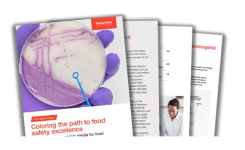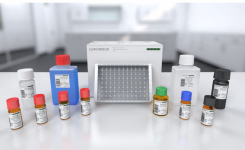| Charm Sciences, Inc. has received approval from the United States Department of Agriculture’s Grain Inspection, Packers and Stockyards Administration (GIPSA) on the detection of aflatoxin and DON in more grain commodities than any other test.
Charm Sciences is pleased to announce a record number of grain commodities approved for the ROSA ® mycotoxin test kits. ROSA (Rapid One Step Assay) technology represents breakthrough advancement in mycotoxin detection by delivering fast, economical, accurate diagnostics for mycotoxins in convenient, one-step strip assays.
The ROSA Quantitative test for aflatoxin has successfully attained the USDA's GIPSA Certificate of Performance (COP) for the detection of total aflatoxin in rye, oats, and distillers dried grains with solubles, which brings the total number of commodities approved to nineteen. The other commodities previously approved for aflatoxin detection include: corn, corn flour, corn germ meal, corn gluten meal, corn meal, corn screenings, corn soy blend, cracked corn, distillers dried grains, flaking corn grits, milled rice, popcorn, rough rice, sorghum, soybeans and wheat.
The ROSA Quantitative test for DON, previously approved for wheat, has successfully attained the USDA's Certificate of Performance (COP) for the detection of DON in nine more commodities: barley, corn, malted barley, milled rice, oats, rough rice, sorghum, wheat flour and wheat midds.
These additional commodities expands the capability for official testing of aflatoxin and DON in the national grain inspection system. In addition to the approved commodities for aflatoxin and DON, five commodities have also been GIPSA approved for zearalenone, including distillers dried grains with solubles. All ROSA mycotoxin tests are optimized for use with the ROSA-M reader, which stores electronic test results for documentation and trend analysis.
Aflatoxins a re a group of chemicals produced by certain mold fungi. If not properly monitored or controlled, the mold can produce dangerous mycotoxins that compromise the quality of grains, food and feedstuffs. Aflatoxins are harmful or fatal to livestock and are considered carcinogenic. Fusarium Head Blight is a fungal disease that, under certain conditions, may produce DON (Deoxynivalenol), also known as “vomitoxin,” usually in wheat, but can also affect barley, and oats. Livestock are particularly susceptible to the presence of DON in feedstuffs by exhibiting signs of feed refusal.
|
















